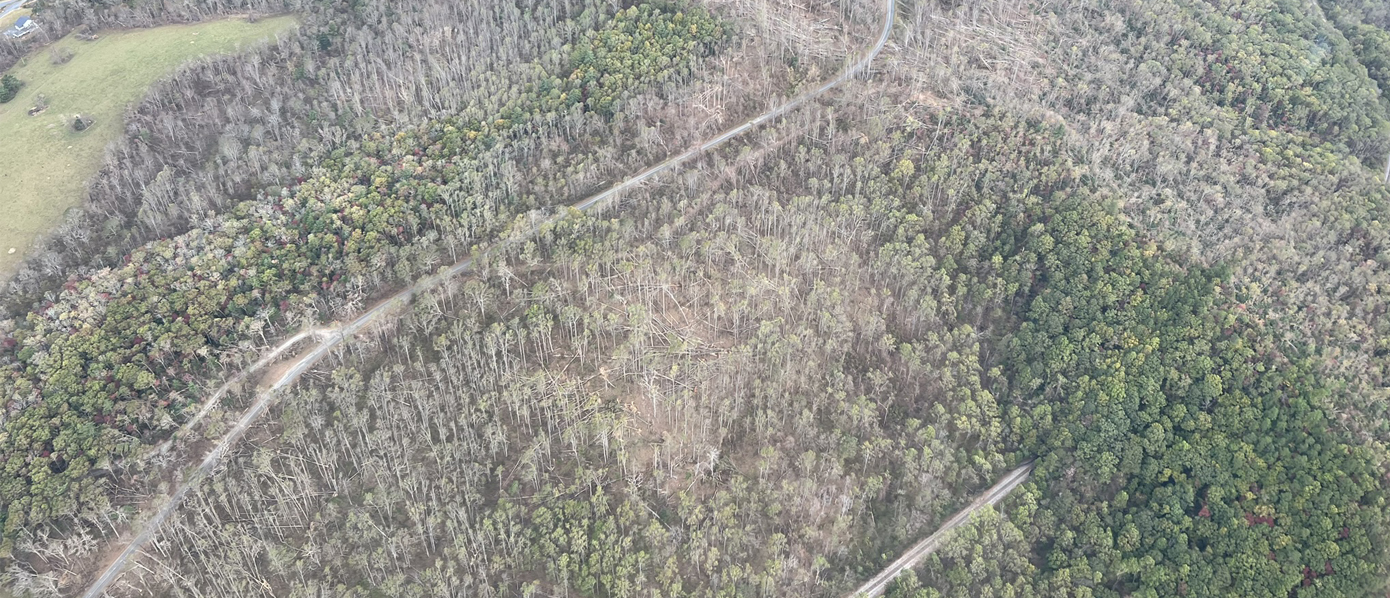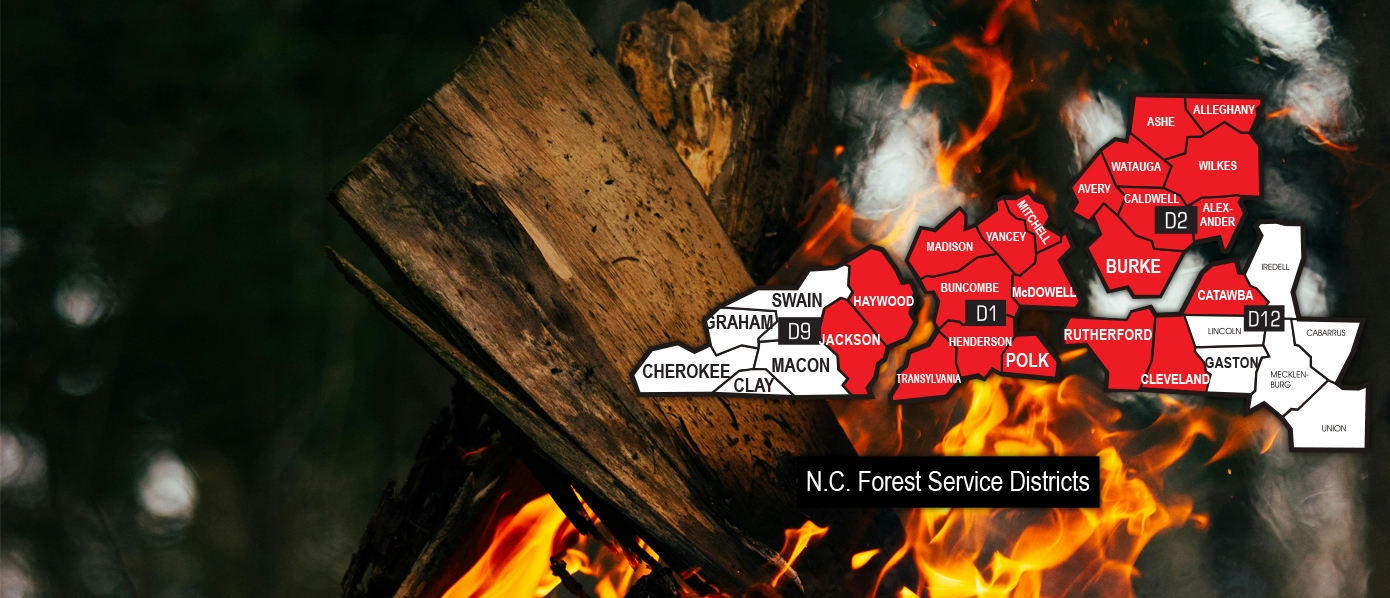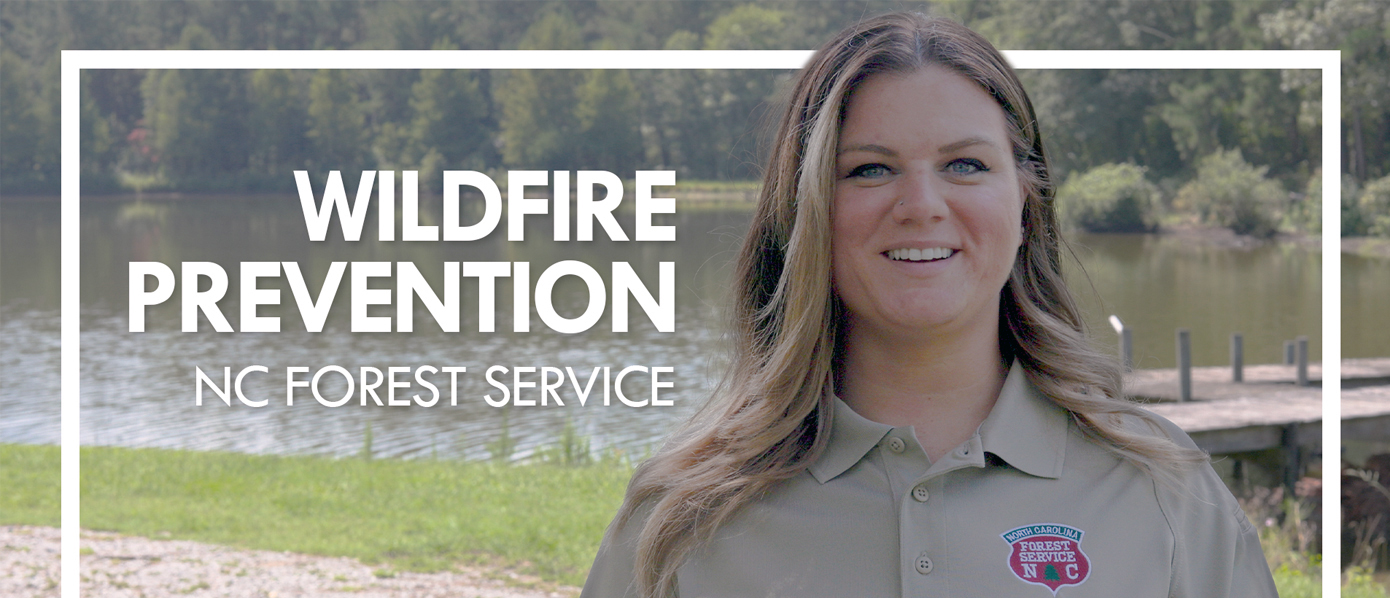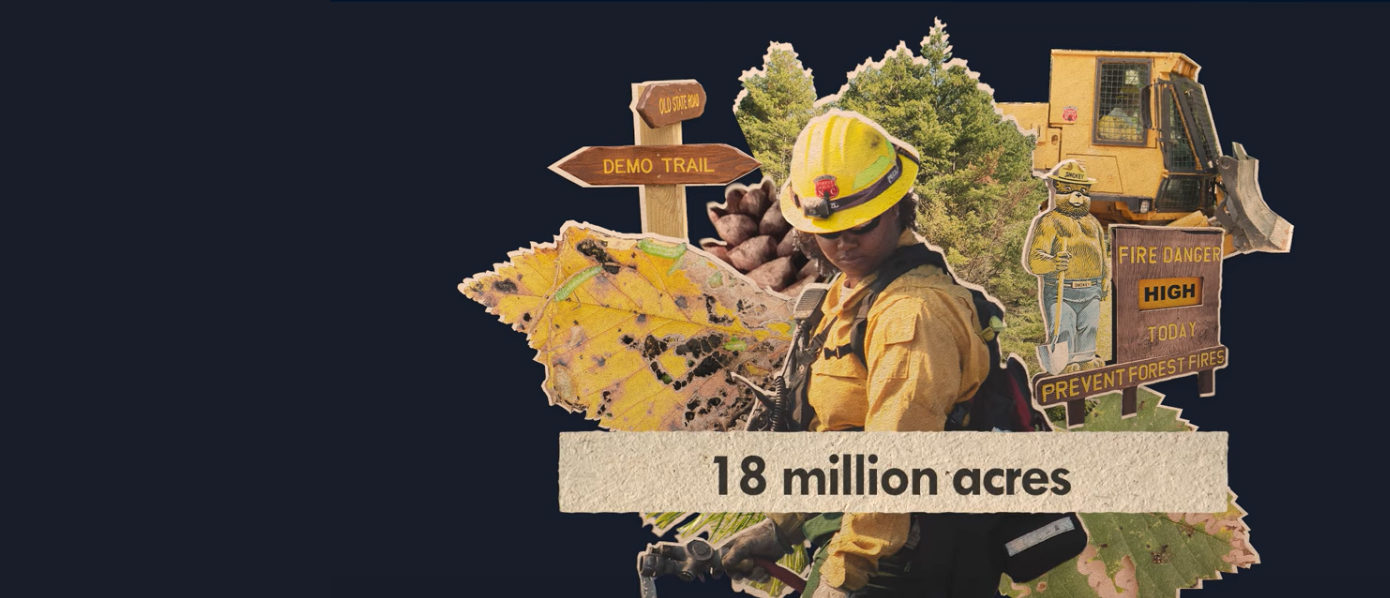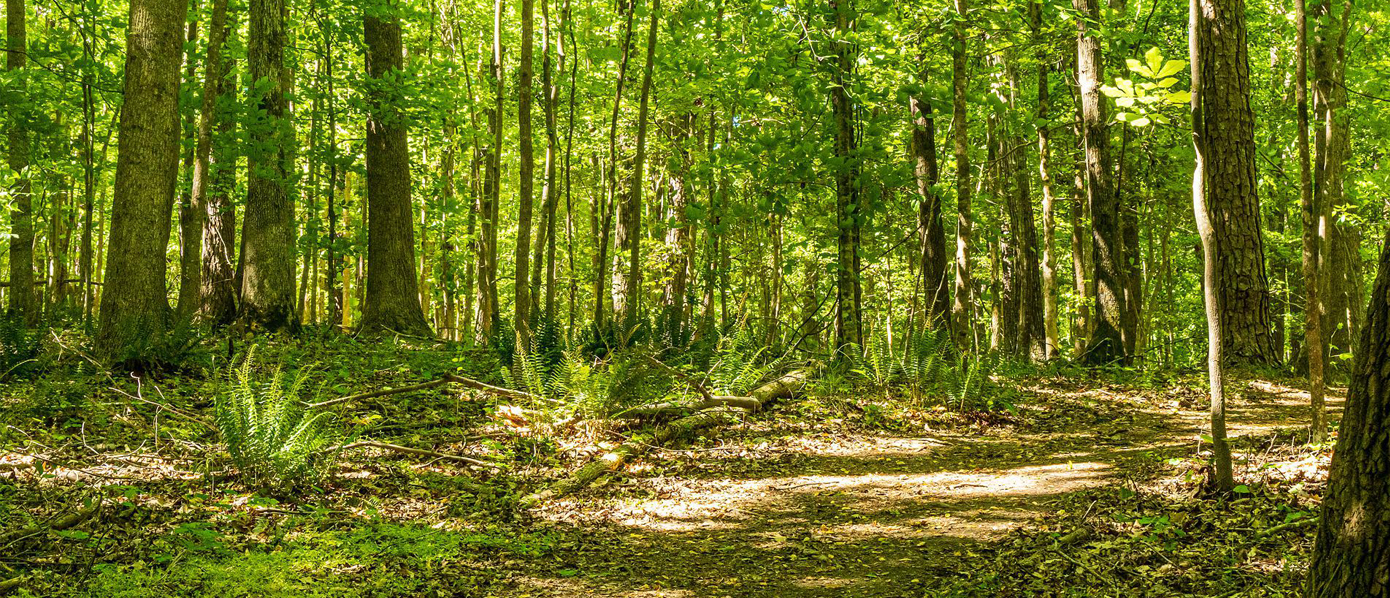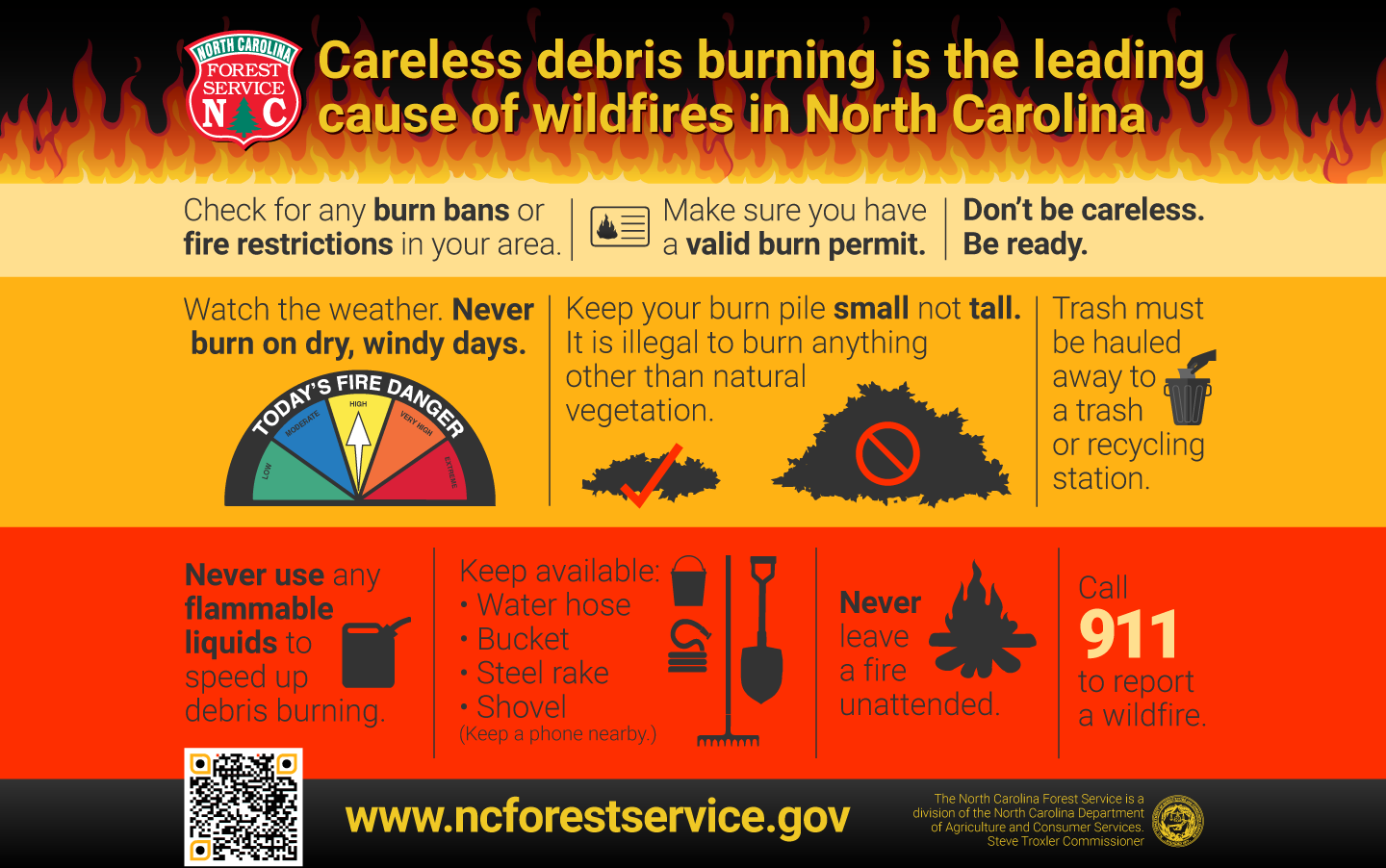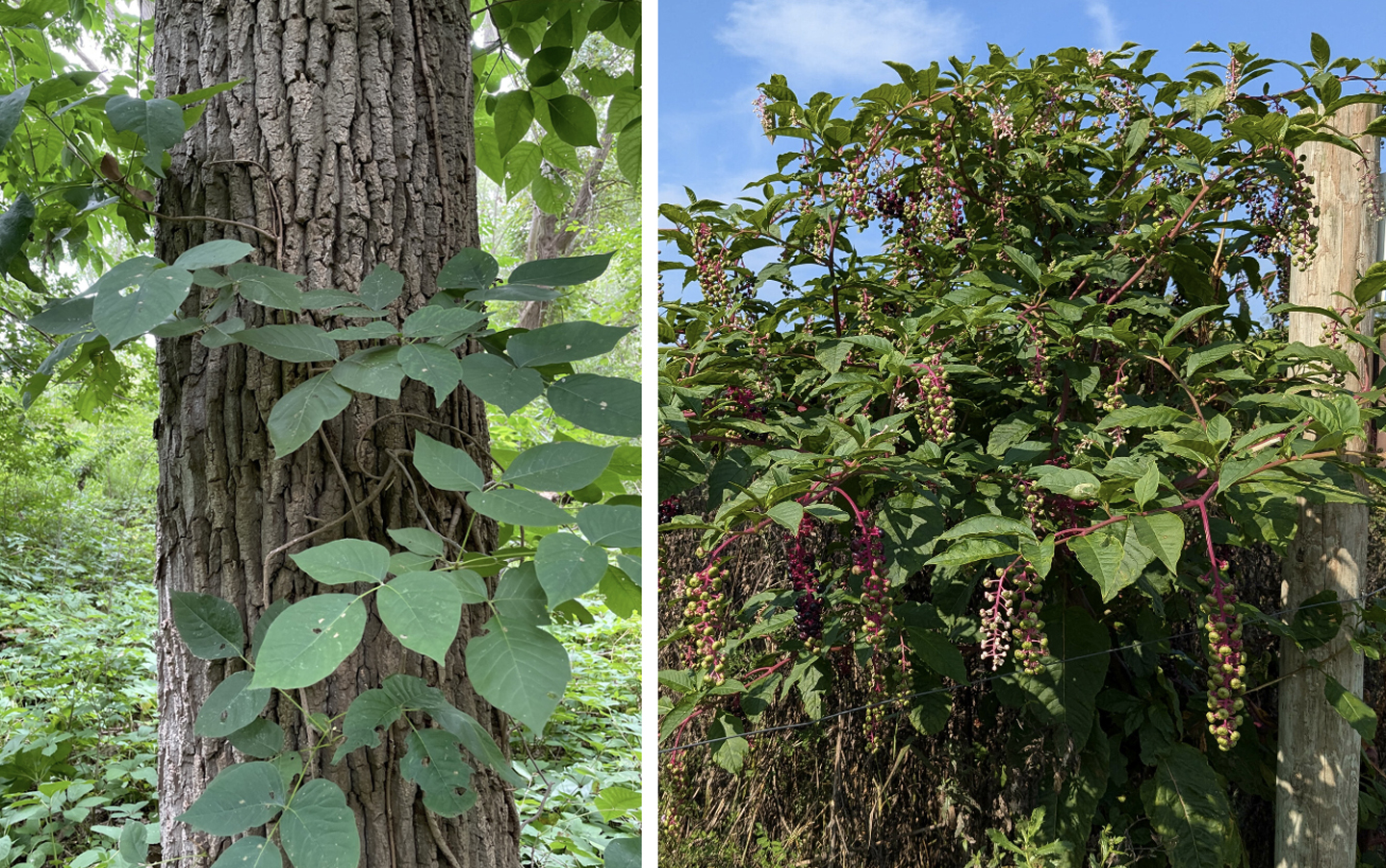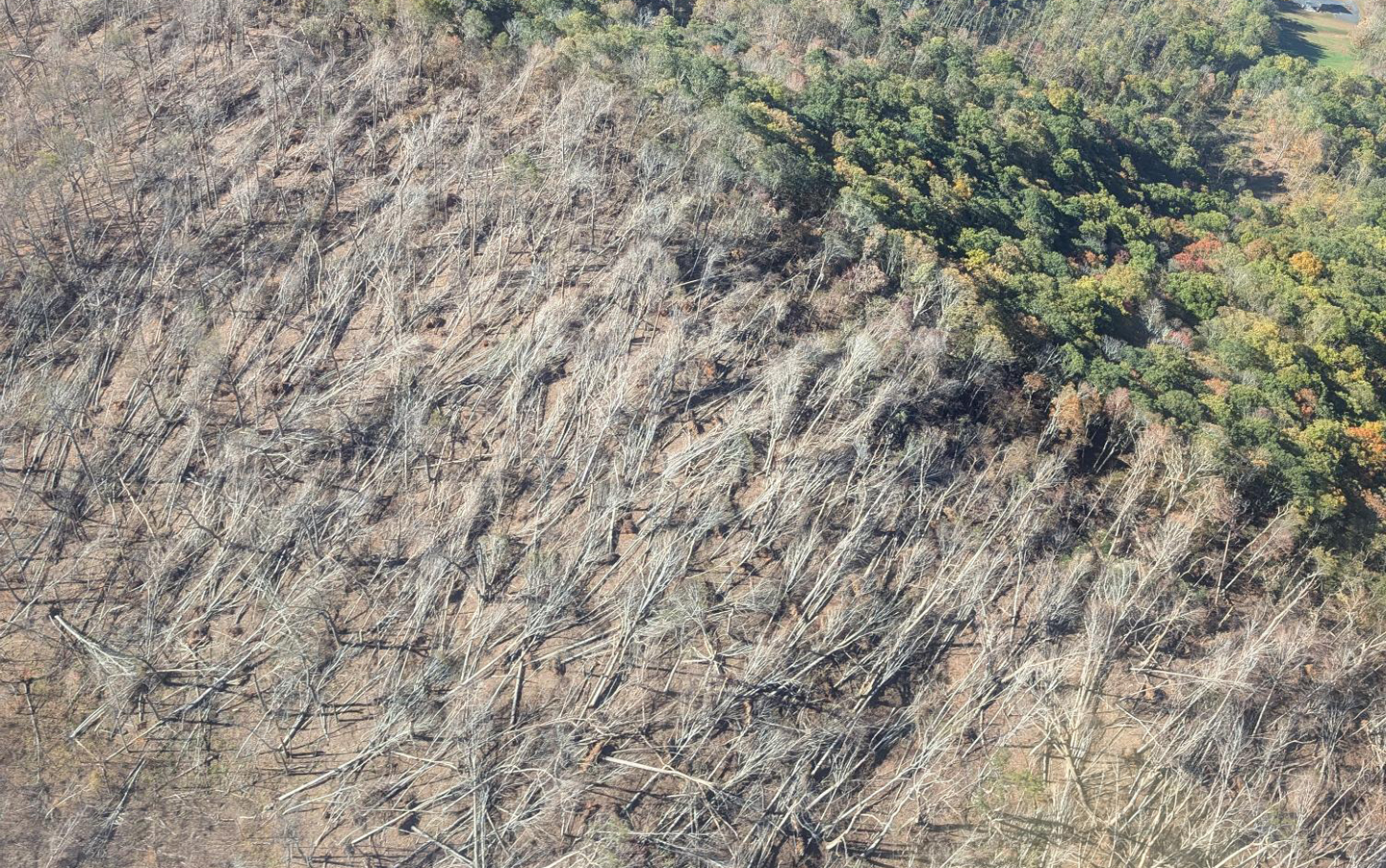Resources available to help with woodland recovery after Hurricane Helene
In the aftermath of a storm, cleanup can be daunting. It can be difficult to know where to start after you’ve already been through so much. There are programs and resources available to help. Our Recovering from Storms and Wildfires page contains several helpful resources for landowners that provide guidance on topics ranging from how to assess the damage and salvaging timber to legal/regulatory guidance, safety considerations and tax implications.
Important Recovery ResourcesOpen burning permits waived until further notice for 21 counties in Western North Carolina
The N.C. Forest Service is waiving the requirement for open burning permits in Alexander, Alleghany, Ashe, Avery, Buncombe, Burke, Caldwell, Catawba, Cleveland, Haywood, Henderson, Jackson, Madison, McDowell, Mitchell, Polk, Rutherford, Transylvania, Watauga, Wilkes and Yancey counties effective at noon Saturday, Oct. 12, until further notice. This measure is enacted through the authorization of House Bill 149, the Disaster Recovery Act of 2024.
News ReleaseNew wildfire prevention PSA urges public to keep backyard fires from turning into wildfires
Ninety-nine percent of wildfires are the result of human activity such as backyard burning and campfires. That means most of North Carolina’s wildfires are avoidable. Escaped yard debris burns are often due to carelessness. Someone burns during poor weather conditions, they turn their backs, and that’s all it takes.
Watch on YouTubeGrant funding applications being accepted through the Volunteer Fire Assistance Award Program
The N.C. Forest Service is accepting applications for grant funding through the Volunteer Fire Assistance Award Program. This program is for North Carolina fire departments serving a population of less than 10,000 people. Grant funding will be awarded to qualifying departments chosen during the application process. Funds can be used to purchase authorized items for wildland firefighting. Applications are being accepted Sept. 1 through Dec. 2, 2024.
Learn More and ApplyLearn how you can start making a difference in a career with the N.C. Forest Service
The N.C. Forest Service isn't just protecting forests. We're protecting futures. By working hand in hand with the citizens of North Carolina, we ensuring our forests stay healthy and productive. Will you help us keep working forests working for future generations to enjoy?
Get Started With Us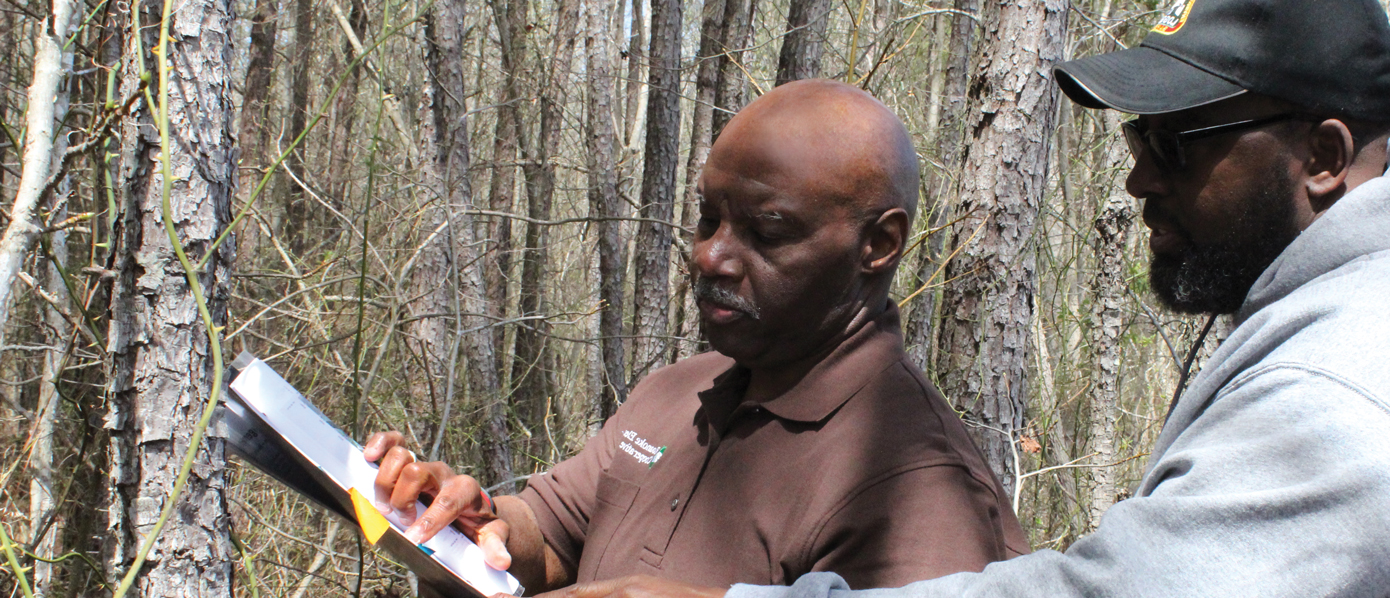
Find your somewhere in a state forest
The N.C. Forest Service manages several state forests across North Carolina. Many of them are open to the public and offer a variety of educational and recreational experiences. Select the State Forests dropdown above to learn more about a state forest near you.
Latest News
Quick Links
- Wildfire/Emergency Response Situation Report
- My Woodland Plan
- Burning Permits
- Dupont State Recreational Forest
- Dupont State Recreational Forest Master Recreation Plan
- Order Tree Seedlings
- Fire Weather
- Readiness Plans
- Educational State Forests
- N.C. Firewise
- Strategic Plan
- Forest Action Plan
- N.C. Forest Service Information Sheet
- North Carolina 2024 State and Private Forestry Fact Sheet
- Forests of North Carolina, 2022 FIA Annual Snapshot
- Private Forestry Service Providers
What We Do
North Carolina's forestland is one of the greatest influences in the state, providing economic value and adding immeasurably to the quality of life for its residents. The forest products industry is the largest manufacturing business sector in the state, contributing approximately $42.5 billion annually to the state's economy and providing around 151,700 jobs for North Carolinians. The N.C. Forest Service's primary purpose is to ensure adequate and quality forest resources for the state to meet its present and future needs.
